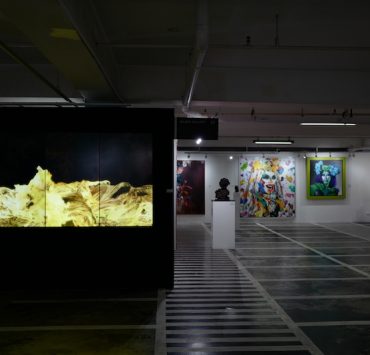In 2003, a viral respiratory disease from a coronavirus originated from a southern province in China. It was believed to spread through close contact (and consumption) of wild animals like civet cats from a local wet market. Because of the fast-moving nature of the virus (incubation period could be as short as a day) and the ease of which it is spread, the virus had become a global outbreak.
In response, many turned to ethnic stereotyping—refusing Asian customers (even if they haven’t traveled to China or any of the affected countries within that time frame), avoiding Asian citizens on public transportation, and refraining from visiting Asian restaurants (in one case, a Vietnamese restaurant owner found that he was reported to have died from the disease). Narratives of Chinese people being dirty and irresponsible spread, and the disease was dubbed “the yellow peril.”
Sounds familiar?
You’ve probably seen the statistics arising from the Wuhan coronavirus outbreak, named after the city in which it was thought to have originated. According to Time, 830 cases have already been reported in China alone, with 26 recorded fatalities. The New York Times, quoting China’s National Health Commission Ma Xiaowei noted that “people who carried the disease but did not show flu symptoms could still infect others.”
You’ve also probably already heard some version of it though that’s inflated. On Facebook alone you’ll find a den of fearmongering and misinformation. One example: The strain has links to Chinese bioterrorism. This claim originated from the Washington Times, a conservative publication known for publishing racist and unscientific content. (If it’s a Chinese biological warfare weapon, why are most of the sick and the dead Chinese? Don’t reply with a different conspiracy theory from an equally untrustworthy source.) Another: The strain can be contacted through the eyes, this time by The Sun, a similarly racist and unscientific conservative publication.
What might be more concerning than just the fearmongering itself is the whiff of racism and xenophobia that have arisen from it. Check Twitter to see the hordes of tweets joking about Korean group BTS spreading the coronavirus at this year’s Grammys. Check it again to see warnings against eating Chinese food on the day of the Lunar New Year. Or look anywhere to see people talk about how disgusting Chinese people are for consuming “exotic” meat, and calls for travel bans that sound less “we need this ban to stop the spread of the disease” and more “we have to ban these people from entering our country and infecting us.”
The reason Western coverage of the coronavirus is so racist is bc it feeds orientalizing narratives of Chinese people as a dirty, diseased orientals and provides an excuse for increased Western aggression & “containment” of China as well as suspicion of Chinese in Western nations
— Muqing (@muqingmq) January 26, 2020
Writing for The Guardian, University of Manchester MA student Sam Phan pens an essay on how the virus is allowing people to bring back tired, old racist stereotypes, with East Asians once again being lumped together. “It did not occur to some of these people, so happy to talk loudly in front of me, that I was also concerned about the virus—or that I, as a British citizen, was no more likely than them to be carrying the virus.”
It’s not just the West. Though we should know better, many Filipinos have been exhibiting the same kind of xenophobia, too, some thinly veiled, some more explicit. A viral tweet talking about someone spraying Chinese people with Lysol and treating it like a joke. More people coming out of the woodwork, rightly frustrated at Chinese racists directing hate towards Filipinos (and we need to be equally honest, there’s no short supply of that), wrongly using this and the outbreak to justify using slurs and spreading Trumpian “go back to your country” narratives. Xenophobic tirades like these directed towards all East Asians, the Filipino-Chinese community included, despite the fact that the Filipino-Chinese community is such a huge part of our country, Binondo being the oldest Chinatown in the world. As if these communities aren’t also scared of the virus.
Here’s the thing: While we should all definitely remain vigilant, the virus itself is not yet a global health emergency. This is because the spread is still mostly contained within China. (As of Jan. 28, there are no confirmed cases of coronavirus in the Philippines yet, although Inquirer.net reported on Jan. 27 that the Department of Health is monitoring 11 suspected cases, and an additional three people with a travel history that includes Wuhan are currently admitted at San Lazaro hospital after showing signs of flu.) This isn’t to say that we should dismiss the reported cases outside China, but to remember one crucial fact: it’s the Chinese people who are most affected by the disease.
Before you scoff at this, keep in mind that fear of disease is a big thing that drives discrimination. That’s what happened in 2014 during the Ebola outbreak, in 2003 during the SARS outbreak, and the in 1980s to 1990s during the HIV/AIDS epidemic. People using the fear of a disease to target a group of people who are already suffering. (Even outside the instances of viral outbreaks, this is the case. Natalia Molina’s “Fit to Be Citizens?” outlines how concerns—and hysteria—over public health has been used throughout history to sow seeds of racial tension.)
It’s true that the Chinese government deserves culpability for the outbreak. Despite the serious health risks that consuming wildlife game meat poses, it’s severely underregulated. The Wuhan local government itself also tried to suppress news of the outbreak, and instead of immediately reporting the severity of the outbreak, hosted a “a potluck banquet attended by more than 40,000 families so the city could apply for a world record for most dishes served at an event.” Business Insider also reported that Chinese authorities detained journalists for trying to cover the virus.
Still, who are the victims here? It’s the Chinese citizens. China is not a monolith, and its people aren’t faceless creatures looking to infect poor, unsuspecting people. The Wuhan authorities misled the people of Wuhan and caused them to potentially be exposed to a life-threatening viral infection. The locals who are victims of this are just as scared as the rest of us, probably even more so. By far, it’s these people who are suffering the most from the outbreak, and blaming them, treating them as an inhuman, monstrous Other, and showering them with xenophobic attacks isn’t going to stop the virus from being real.
Featured photo courtesy of Daan Stevens on Unsplash
Get more stories like this by subscribing to our weekly newsletter here.
Read more:
Bats and snakes may be the source of new coronavirus strain, according to studies
A new coronavirus strain was confirmed in Cebu City
Writer: ZOFIYA ACOSTA




